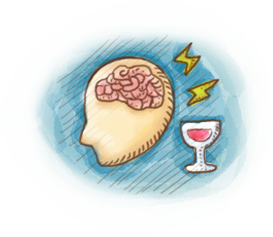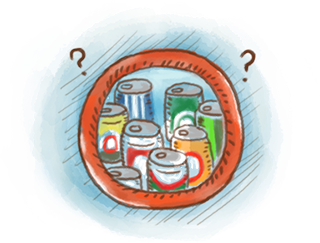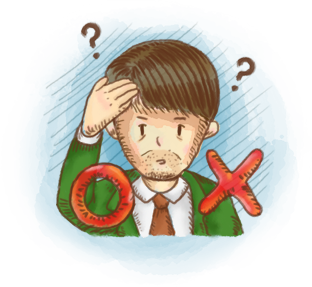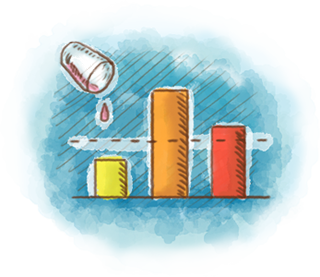I. Risks associated with underage drinking
- The International Agency for Research on Cancer of World Health Organization has classified alcoholic beverages as Group 1 Carcinogen, which means alcohol can increase the risks of cancer.
- Alcohol itself is an addictive substance. When the body adapts to the alcohol, the alcohol effects will be reduced. People will begin to appear "tolerance" and need to drink greater amounts of alcohol progressively in order to reach the same effect. This finally leads to alcoholism. The earlier the youths start to drink, the higher the risk for them to develop alcohol abuse or dependence in adulthood.
- Alcohol can inhibit rational thought which may make youths jump into a danger situation.
- In general, alcohol-related harm expresses as a continuum. It will also make youths have lots of drunken misconduct which will put them in an embarrassing situation. Besides, binge drinking can cause alcohol poisoning and death.
- Drinking is harmful to youths’ brain development. Youths with long-term alcohol consumption may have poorer memory.
II. Tips for parents
Are your kids getting the right information about alcohol? Why it is important for parents to communicate with children and adolescents about alcohol-related issues? In order to prevent underage drinking, parenting styles are important. Meaningful conversations about alcohol between parents and their children can help the child develop healthy attitudes toward drinking.
What can parents do?
1. Discuss more about alcohol with children
- Discuss more with children and teens about your concerns and theirs regarding alcohol, in order to understand more about children’s attitudes towards drinking and reduce their curiosity.
- Let children understand the harmful effects of drinking alcohol and it is not necessary to do social drinking.
- Establish family rules with children about No alcohol use, and be consistent in setting expectations and enforcing rules.
2. Be a role model for your children
- Do not drink alcohol
- Do not embellish underage drinking nor binge drinking
- Do not create an alcohol-friendly family gathering. Let your children understand that they can still have a great time with non- alcoholic beverages as alternatives.
When your children have a drinking problems
- Do not argue with your children when they are drunk. Discuss the drinking problems with them when they are sober.
- Take a deep breath and do some stretching exercises to help you to relax. It is important to keep sanity to deal with the problem.
- Call in help from a professional, like a social worker, doctor or therapist to ask for advice on how to get the children into treatment.
























